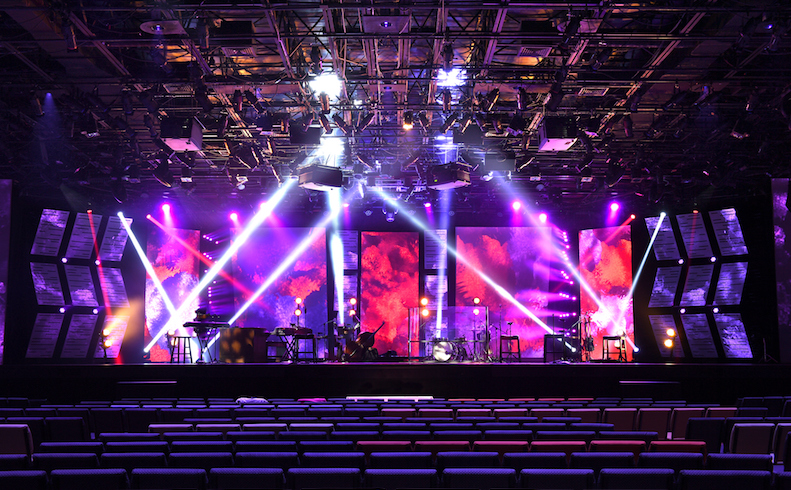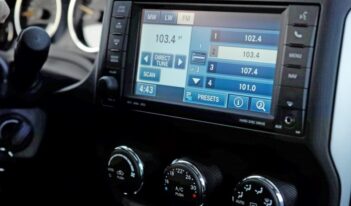
GAO describes potential solutions to limit the use of automated software in the ticket marketplace.
Cardi B and Offset may have stolen the stage at the Rolling Loud Festival in December, but the issues in the entertainment industry extend far beyond artists’ relationship problems. For consumers, problems arise from ticket bots.
Concerts, sporting games, and other events bring joy to those who attend. But many people will miss out on these experiences due to brokers who purchase large quantities of tickets through bots to resell at a considerable markup.
In a recent report, the U.S. Government Accountability Office (GAO), the government oversight arm of Congress, describes the problems created by the use of ticket bots and suggests solutions. Specifically, GAO urges policymakers to consider a variety of legal and marketing strategies, including the use of nontransferable tickets, price caps on resold tickets, delivery delays, and verified fan programs.
Ticket brokers frequently use computer software — also known as “bots” — to purchase large quantities of tickets from the original seller. By reselling these tickets on the secondary ticket market, brokers can make large profits. In fact, the average profit for brokers is 49 percent. Because bots buy up the stock of tickets before consumers can access them, consumers must resort to purchasing expensive tickets at a mark-up on the resale market.
Although the Better Online Ticket Sales Act — enacted in 2016 — prohibits the use of bots, the Federal Trade Commission has not enforced the legislation and ticket bots still crowd the market.
In a report, GAO considers steps that could be taken to combat the power of bots. The report notes, for example, that nontransferable tickets — “tickets whose terms do not allow resale” — may inhibit brokers from using bots to resell tickets at a bloated price. Instead of paying a higher price on the secondary market, consumers would pay face value.
At the same time, however, consumers are caught in the crossfire. Along with brokers, consumers would not be allowed to resell their own tickets and recoup money for tickets they may no longer be able to use. Already, at least three states — Connecticut, New York, and Virginia — have restricted the use of nontransferable tickets. Furthermore, nontransferable tickets require consumers to present identification at the venue, which may be inconvenient. Still, “these obstacles can be overcome,” notes GAO. The government watchdog urges consideration of “mechanisms allowing buyers to transfer tickets upon request, and by using processes to speed venue entry (such as automated kiosks).”
GAO also says that caps on the resale value of tickets could curb the use of bots. Some states have enacted laws that limit the resale price of tickets. For example, in Massachusetts, tickets cannot be resold for more than two dollars above the face value. GAO notes that, unlike nontransferable tickets, price caps can limit the use of bots by reducing broker profits while still permitting regular consumers to resell tickets they cannot use.
Despite the appeal of price caps, some states have actually repealed their price cap laws. Several studies note that states find these laws difficult to enforce and that resellers do not comply with them. Other critics argue these restrictions only force tickets to be resold underground. Without the protections legitimate secondary market exchanges offer, consumers still suffer.
GAO also examines several market-based approaches. Delivery delays prevent buyers from accessing tickets until closer to the day of the event. “Delivery delays can inhibit resale activity because they give brokers less time to buy and resell tickets, and allow primary ticket sellers to review whether brokers and bots made bulk purchases,” GAO reports. Some critics, however, contend that receiving tickets so close to the event can be “inconvenient and stressful” for fans.
In addition to delivery delays, GAO indicates that a “verified fan” program would make it easier for more consumers and less brokers to purchase tickets. Ticketmaster, the largest primary ticket seller, operates a verified fan program that allows fans to register in advance of a presale. Through the use of an algorithm, the platform determines whether the registrant is a real person or a bot. Verified fans can then purchase from a limited pot of tickets made available before the general public sale.
Critics argue that verified fan programs present other problems. Because not every verified fan can buy a ticket, consumers may still have to purchase an overpriced ticket from the secondary market. More notably, some performers offer “boosts” that allow fans to improve their position in the virtual presale queue. For some performers, like Taylor Swift, fans must purchase merchandise or spend their time watching music videos.
Still, Ticketmaster says that the verified program is effective at limiting the number of tickets resold on the secondary market — only about 5 percent of tickets bought through the verified program are resold, compared to an estimated 30 percent to 50 percent purchased from general sale.
GAO does not say which solution would be preferable, but notes that consumer dissatisfaction with ticket sales results from the fact that “demand for tickets to highly popular events exceeds supply.” Short of expanding supply, no activity will solve this problem, GAO reports.



